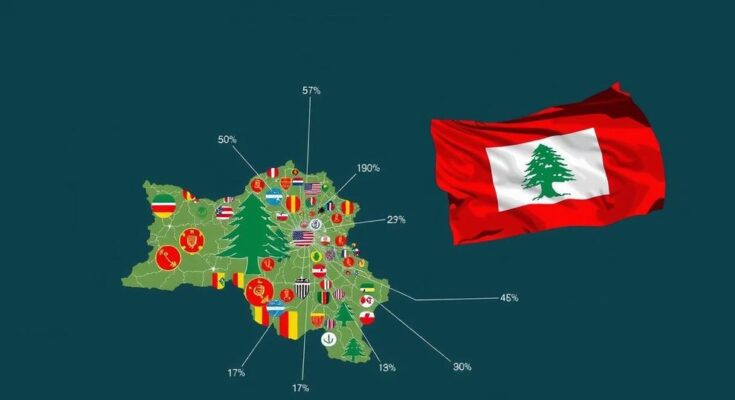Iran is intensifying its support for Hezbollah as a potential ceasefire with Israel looms, with Foreign Minister Abbas Araghchi voicing backing for the Lebanese resistance. Iran’s strategies, which include sending medical assistance and smuggling weapons to Hezbollah, reflect its regional ambitions and the complexity of Middle Eastern politics. The upcoming 60-day ceasefire may prompt Iran to reassess its military and nuclear ambitions.
Iran’s involvement in the Lebanese crisis is intensifying as Foreign Minister Abbas Araghchi publicly supports Hezbollah amid prospects of a ceasefire between Israel and Hezbollah. During a recent conversation, Araghchi emphasized Iran’s backing of both the Lebanese government and the populace, concurrently applauding the resilience demonstrated by Lebanese resistance fighters against Israeli forces. This backdrop of encouragement is augmented by Iran’s tangible support through a medical mission dispatched to Lebanon and ongoing covert weapon transfers to Hezbollah.
As the ceasefire looms, designated by updated military maneuvers by Israel in southern Lebanon, the implications for Iran and its regional strategies warrant careful consideration. Iran has sought to fortify Hezbollah’s stance following the onset of conflict spurred by the October 7 Hamas attack, an act that inadvertently thrust Hezbollah into a conflict not of its choosing. The political landscape has shifted, especially after Israel commenced ground operations aimed at dismantling Hezbollah’s foothold along the northern border.
The strategic nexus surrounding a potential ceasefire reflects Iran’s geopolitical positioning in a region characterized by turbulence. With references to historical turning points, the ‘Rubicon’ illustrates that Iran may contemplate an escalation of its military endeavors, either by advancing its nuclear program or mobilizing its regional proxies to launch strikes against Israeli targets. Primarily, the 60-day ceasefire period corresponds with critical transitions in U.S. leadership, marking an opportune moment for Iran to reassess its operational priorities regarding its nuclear ambitions and regional aggression.
The relationship between Iran and Hezbollah, shaped by shared ideological beliefs and geopolitical interests, has been a crucial element in the dynamics of Middle Eastern conflict. Following the resurgence of hostilities between Israel and Hezbollah, exacerbated by Israel’s military responses and the strategic role of Iran, the prospect of a ceasefire signifies not only a localized cessation of hostilities but also a potential pivot point for Iranian influence in the region. The ceasefire aligns with broader themes of U.S. foreign policy shifts and the recalibration of Iranian strategy amidst evolving international relations.
In summary, as the potential ceasefire between Israel and Hezbollah approaches, Iran’s decisions will resonate throughout the region. The balance of power is shifting, and Iran must navigate its next steps carefully—deciding whether to refocus on its nuclear strategy or to unleash its proxies against Israel. The outcome of these deliberations will significantly influence the geopolitical landscape of the Middle East moving forward.
Original Source: www.jpost.com




